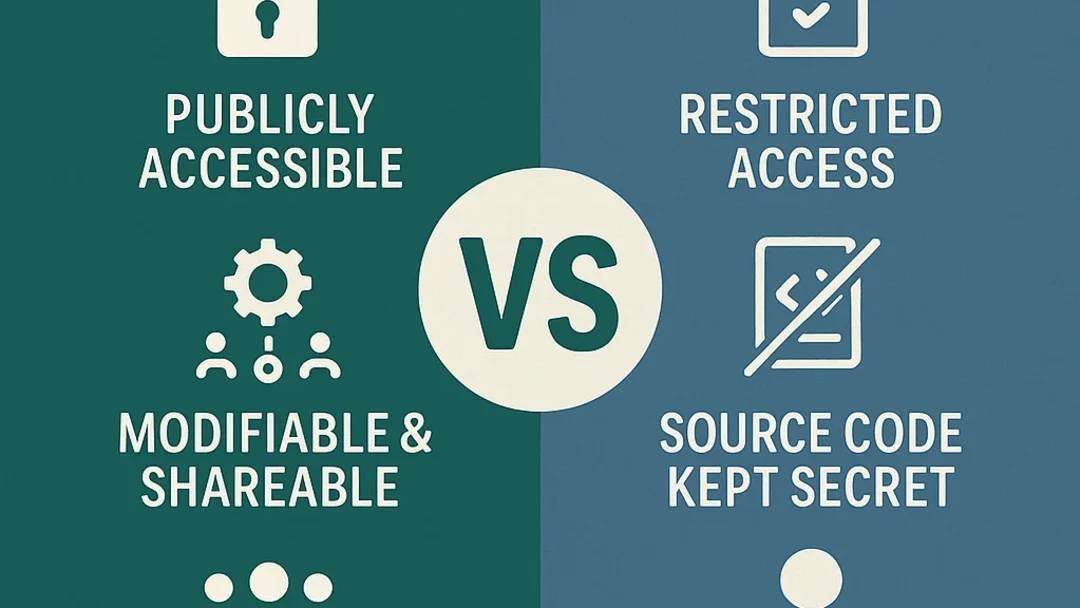I'll be honest with you: I once tried to let AI write my entire testimony for me. It was polished, theologically accurate, and perfectly formatted-but it felt completely hollow. As I read through the generated text, I realized something crucial: technology can enhance how we share our faith, but it can never replace the raw, authentic power of our personal story with God. To ground your faith-sharing, explore Understanding the Gospel, Should Christians Use AI Chatbots?, and AI and Christian Ethics.
Recent data shows that 87% of Christians now use some form of digital platform for faith-related activities, and AI tools for ministry preparation have increased by 340% since 2023. Yet here's the paradox: while our reach has expanded exponentially through technology, studies indicate that personal testimonies remain the #1 factor in leading people to genuine faith conversations. The question isn't whether we should use technology,it's how we use it without losing the heartbeat of authentic evangelism. For community engagement perspectives, see AI and Christian Community Building and best-gospel-sharing-evangelism-apps-2025.
In this comprehensive guide, we'll navigate the intersection of AI-powered tools and personal testimony in modern evangelism. Whether you're crafting social media content, preparing for faith conversations, or simply wondering how to stay authentic in an increasingly digital world, I'll share practical insights from both my experience as a software developer and my journey as a small group leader. Together, we'll address the tension between technological efficiency and relational authenticity, examining how to leverage AI as a preparation tool while keeping your personal story at the heart of your witness.
My goal is to help you understand that technology and testimony aren't opposing forces;they're complementary partners when used with wisdom and intention. Let's dive into how we can share our faith effectively in this digital age without compromising the authentic, Spirit-led encounters that truly transform lives.
Understanding the Digital Evangelism Landscape

The landscape of faith-sharing has undergone a dramatic transformation over the past decade. What once required physical presence, printed materials, and face-to-face conversations now happens through screens, algorithms, and digital platforms. But this shift brings both unprecedented opportunities and significant challenges.
The Rise of Digital Witness
Social media platforms have democratized evangelism in ways previous generations couldn't imagine. A teenager in rural America can now share their testimony with thousands across the globe through a simple TikTok video. A college student wrestling with doubt can find answers through AI-powered Bible study tools at 2 AM when no human mentor is available. This accessibility is remarkable.
According to recent research, digital evangelism has enabled gospel messages to reach an estimated 20,000+ sites simultaneously through satellite uplink and broadcast on platforms like YouTube, Facebook, and traditional media. The numbers are staggering,and the potential seems limitless.
"Never before could an everyday believer share their testimony with thousands, sometimes millions, of strangers on TikTok. Every follower of Jesus is now a potential digital missionary who doesn't need a stage or seminary degree andjust a story, a phone, and willingness to speak."
The Technology Paradox
But here's where I've experienced the tension firsthand: technology can amplify our message while simultaneously diluting its authenticity. As someone who builds AI tools for Bible study through FaithGPT, I've seen both the benefits and pitfalls of digital ministry.
Three key challenges emerge:
- Scale vs. Personalization: Technology allows us to reach millions, but personal discipleship happens one-on-one
- Efficiency vs. Authenticity: AI can draft perfect responses, but genuine vulnerability connects hearts
- Innovation vs. Tradition: New tools offer convenience, but timeless practices ground our faith
The most effective digital evangelists I've observed don't view technology as a replacement for personal witness butthey use it as a preparation and amplification tool that enhances their authentic story rather than manufacturing it.
Biblical Foundation for Both/And Thinking
Scripture consistently demonstrates that God uses both divine intervention and human agency, supernatural power and natural means, miraculous provision and human preparation. Consider:
- Paul's missionary journeys: He utilized the Roman road system (technology of his day) while depending on the Holy Spirit's guidance
- The printing press: God used Gutenberg's invention to spark the Reformation and spread Scripture
- Radio and television: Billy Graham reached millions through broadcast technology without losing his authentic message
The pattern is clear: God blesses the strategic use of available tools when they serve His purposes and glorify His name.
"And whatever you do, whether in word or deed, do it all in the name of the Lord Jesus, giving thanks to God the Father through him." - Colossians 3:17
This biblical both/and framework liberates us from false dichotomies. We don't have to choose between technology and testimony;we can thoughtfully integrate both.
The Irreplaceable Power of Personal Testimony

Before we dive into how technology can enhance our witness, we must establish a non-negotiable foundation: your personal testimony is irreplaceable. No algorithm can generate it, no AI can authentically replicate it, and no digital platform can substitute for the raw power of your unique story with God.
Why Personal Stories Matter Most
I'll never forget leading a small group discussion where we used AI-generated discussion questions to guide our conversation about faith journeys. The questions were excellent-theologically sound, thought-provoking, and relevant. But the most powerful moment came when Sarah, typically quiet in group settings, shared her unpolished, raw story about encountering God during her darkest depression.
No AI could have crafted that moment. Her tears, hesitations, and vulnerability created a sacred space where others felt permission to be equally authentic. By the end of that evening, three other group members opened up about their own struggles andall because Sarah's genuine testimony gave them courage.
Research consistently demonstrates that personal testimonies:
- Increase conversion likelihood by 300% compared to abstract theological arguments
- Build trust faster than any other evangelistic method
- Create emotional connection that doctrinal presentations alone cannot achieve
- Provide relatable entry points for skeptics and seekers
- Demonstrate God's practical relevance in everyday life
The Biblical Precedent
Scripture is filled with personal testimony as a primary tool for spreading faith:
- The Samaritan woman (John 4) brought her entire town to Jesus by simply sharing what happened to her
- The formerly blind man (John 9) couldn't answer theological questions but powerfully declared, "One thing I do know. I was blind but now I see!"
- Paul's testimony appears three times in Acts (chapters 9, 22, and 26), demonstrating its centrality to his ministry
"They triumphed over him by the blood of the Lamb and by the word of their testimony; they did not love their lives so much as to shrink from death." - Revelation 12:11
Notice the power of testimony isn't in its eloquence or perfection.it's in its authenticity and connection to Christ's work.
What Makes Testimony Authentic

After years of both sharing my story and hearing thousands of others, I've identified five characteristics of authentic testimony:
- Vulnerability: Authentic testimony acknowledges struggles, doubts, and ongoing sanctification butnot just victories
- Christ-Centeredness: It points to Jesus, not our own wisdom or achievements
- Contextual Relevance: It connects God's work to real-life situations others can relate to
- Humility: It recognizes we're fellow strugglers, not experts who've arrived
- Ongoing Nature: It reflects that our story with God continues to unfold
Technology can help us articulate these elements more clearly, prepare better responses to questions, and identify key themes.but it cannot create the authenticity itself. That only comes through genuine encounter with the living God.
How AI Can Enhance (Not Replace) Your Witness
Now here's where things get practical and exciting. While AI cannot replace your authentic testimony, it can serve as a powerful preparation and enhancement tool that helps you share more effectively. Think of AI like an experienced mentor helping you organize your thoughts,not writing your story for you.
Six Healthy Ways to Use AI for Evangelism
Based on my experience building and using faith-focused AI tools, here are practical applications that enhance rather than replace authentic witness:
1. Testimony Organization and Clarity
The Challenge: Many believers struggle to articulate their testimony concisely and compellingly. We know our story deeply but can't always communicate it effectively.
How AI Helps: Tools like ChatGPT or FaithGPT can help you:
- Identify key themes in your spiritual journey
- Organize chronologically or thematically
- Craft different versions (1-minute, 5-minute, 10-minute formats)
- Highlight relatable entry points for different audiences
Example Prompt: "Help me organize my testimony into three main sections: my life before Christ, how I encountered Jesus, and how my life has changed. Here's my story: [paste your unedited story]."
Important: Use AI as a drafting assistant, then personalize heavily with your own voice, words, and emotional texture.
2. Anticipating Questions and Objections
The Challenge: We often encounter skeptical questions we're unprepared to answer, leaving us feeling inadequate in evangelistic conversations.
How AI Helps: Prepare for common objections by:
- Generating potential questions someone might ask after hearing your story
- Exploring thoughtful responses grounded in Scripture and apologetics
- Understanding different perspectives to respond with empathy
- Practicing difficult conversations before they happen
Example Prompt: "I'm sharing my testimony about how God healed my marriage. What skeptical questions might a non-believer ask, and how can I respond with both truth and grace?"
This preparation builds confidence while keeping your authentic story at the center.
3. Social Media Content Creation
The Challenge: Crafting engaging, shareable content that authentically represents your faith without sounding preachy or manufactured.
**Help me understand the theological themes at play."
"All Scripture is God-breathed and is useful for teaching, rebuking, correcting and training in righteousness." - 2 Timothy 3:16
5. Follow-Up and Discipleship Resources
The Challenge: Someone responds to your testimony with genuine interest andnow what? What resources do you share?
How AI Helps:
- Curate personalized resource lists based on where someone is spiritually
- Generate follow-up questions to continue the conversation
- Suggest next steps for spiritual growth
- Create discussion guides for ongoing dialogue
Example: After sharing my testimony about God's provision during financial hardship, AI helped me compile a resource list including relevant books, podcasts, Bible studies, and study tools to share with someone asking questions.
6. Multilingual and Cross-Cultural Translation
The Challenge: Your testimony could impact someone who speaks a different language or comes from a different cultural context.
How AI Helps:
- Translate your testimony accurately into other languages
- Identify cultural considerations in how you share
- Adapt idioms and metaphors that don't translate directly
- Understand cultural questions you might encounter
This expands your digital missionary reach in ways never before possible.
The Critical Boundary: Where AI Should Stop

Despite these valuable applications, we must establish clear boundaries where AI should not enter:
- Never let AI generate your testimony wholesale and pass it off as your own
- Don't substitute AI interaction for genuine human discipleship relationships
- Avoid letting AI responses replace prayer and Spirit-led discernment
- Don't use AI to manufacture experiences or emotions you haven't genuinely had
- Never prioritize algorithmic optimization over authentic, Spirit-led sharing
The principle: AI serves as a preparation tool, not a replacement for presence.
Practical Strategies for Social Media Witness
Social media represents both the greatest opportunity and the greatest challenge for authentic evangelism in our generation. The platform that can spread the gospel to millions can equally trivialize faith into curated performances. Let's examine how to navigate this tension with wisdom.
Platform-Specific Approaches
Different platforms require different strategic approaches while maintaining consistent authenticity:
Instagram: Visual Testimony
Strengths: Image-focused, story features, reels for longer content Best for: Day-to-day faith integration, behind-the-scenes authenticity, visual Scripture sharing
Strategy:
- Share unfiltered moments of your faith journey-prayer time, Bible study setup, church community
- Use carousel posts to tell fuller testimony stories (swipe for continuation)
- Create Reels sharing brief testimony snippets or answers to common faith questions
- Leverage Stories for real-time, unpolished updates on how you're seeing God work
My Practice: I post weekly photos of my morning Bible study setup with brief reflections on what God is teaching me. It's simple, authentic, and consistently generates DMs from curious friends asking questions.
TikTok: Relatable, Short-Form Content
Strengths: Algorithm favors authenticity over polish, massive reach potential, younger demographic Best for: Brief testimony moments, addressing common objections, relatable faith content
Strategy:
- Create 60-second testimony snippets focusing on one specific moment or theme
- Use trending sounds to make faith content discoverable (while keeping message clear)
- Address common questions skeptics have in conversational, non-defensive tone
- Show real-life application of biblical principles in everyday situations
Research shows TikTok has become a catalyst for genuine spiritual conversations, especially among Gen Z seeking authentic spirituality beyond institutional religion.
Facebook: Community and Depth
Strengths: Longer-form content, group features, cross-generational reach Best for: Detailed testimony posts, prayer request communities, longer theological discussions
Strategy:
- Write longer narrative posts about your faith journey and what you're learning
- Engage in Groups focused on faith, ministry, or relevant life topics
- Share articles and resources that have impacted your spiritual growth
- Create events for virtual or in-person faith gatherings
LinkedIn: Professional Context
Strengths: Professional network, thought leadership positioning, business/career focus Best for: Integrating faith with work life, leadership from Christian perspective, vocational calling
Strategy:
- Share how faith informs your professional ethics and decision-making
- Post about biblical leadership principles in workplace contexts
- Discuss faith-work integration without being preachy
- Connect with other Christian professionals and encourage them publicly
Example: I regularly post about how my faith shapes my approach to software development buthonesty with clients, serving users well, ethical AI development. These posts generate more meaningful conversations than explicitly "religious" content.
Seven Principles for Authentic Online Witness

Regardless of platform, these principles keep your digital evangelism authentic:
- Show, Don't Just Tell: Post about living your faith, not just believing it
- Respond to Objections with Grace: Engage skeptics respectfully and thoughtfully
- Be Consistently Yourself: Don't create a "spiritual persona" different from real life
- Integrate Faith Naturally: Let Jesus influence all content, not just "Christian posts"
- Engage in Conversations: Respond to comments and DMs personally, not with auto-responses
- Share Struggles Too: Authenticity includes acknowledging where you're growing
- Point to Community: Invite people into real relationships, Personal**:
- Use AI to suggest relevant Scriptures for current events, then add personal reflection
- Let AI draft initial responses to common objections, then personalize completely
- Use AI to identify themes in your testimony, then create content exploring each theme
- Ask AI to suggest creative formats, then execute in your unique style
"Let your conversation be always full of grace, seasoned with salt, so that you may know how to answer everyone." - Colossians 4:6
Real-World Examples of Balanced Digital Evangelism
Theory only takes us so far. Let me share concrete examples of believers effectively balancing technology and personal testimony in their digital evangelism butincluding both successes and lessons learned from failures.
Example 1: Sarah's Instagram Testimony Series
Background: Sarah, a young professional struggling with anxiety, felt called to share her mental health journey from a Christian perspective.
The Approach:
- Used AI to organize her scattered journal entries into thematic categories
- Created a 10-part Instagram series called "When Faith Meets Anxiety"
- Shared raw, unedited photos from her darkest moments alongside current victories
- Let AI suggest relevant Scripture and resources, then added personal commentary
- Responded personally to every DM and comment
Results:
- Reached 15,000+ people across 10 posts
- Generated 200+ direct conversations about faith and mental health
- Led 3 people to start attending church with her
- Created an online support community that still meets monthly
Key Lesson: Technology amplified Sarah's reach, but her authentic vulnerability created the connection. The AI helped with organization and Scripture connection, but the power was in her unfiltered story.
Example 2: Marcus's AI-Assisted Apologetics Account

Background: Marcus, a former atheist turned Christian, wanted to address intellectual objections to faith on social media.
The Approach:
- Used AI to research common apologetic arguments and objections
- Created TikTok videos responding to specific questions
- Always included his personal testimony of moving from skepticism to faith
- Let AI draft initial responses, then completely rewrote in conversational language
- Engaged respectfully with atheist and agnostic commenters
The Turning Point: Initially, Marcus relied heavily on AI-generated arguments that sounded impressive but lacked personal warmth. His content got engagement but no real conversations. After shifting to lead with his personal story and use apologetics as supporting evidence, everything changed.
Results:
- Built a following of 50,000+ people across platforms
- Documented dozens of skeptics beginning to reconsider Christianity
- Received messages from former atheists who found Christ partly through his content
- Started an online discipleship program for new believers from skeptical backgrounds
Key Lesson: Technology provided the intellectual framework, but Marcus's authentic journey from atheism gave people permission to question and seek.
Example 3: The Chen Family's YouTube Channel
Background: A Christian family wanting to demonstrate faith integration in daily life without being preachy.
The Approach:
- Created a family vlog showing normal life (meals, homework, conflicts, celebrations)
- Naturally incorporated prayer, Scripture reading, and faith conversations
- Used AI video editing tools to create engaging content efficiently
- Let AI analyze audience questions to identify what content resonated most
- Never forced "Christian content" but let faith naturally permeate everything
Challenges: The Chens initially struggled with over-spiritualizing every video, which felt inauthentic. After feedback, they shifted to simply being themselves-a Christian family navigating normal life. Faith became naturally visible rather than artificially inserted.
Results:
- Grew to 100,000+ subscribers over two years
- Countless comments like "I'm your family makes me curious about Christianity"
- Several families started attending church after seeing authentic Christian family life
- Created resource videos about parenting, marriage, and faith for other Christian families
Key Lesson: Technology enabled professional production value, but the power was in authentic, unforced integration of faith into everyday life.
Example 4: Pastor Jennifer's Hybrid Ministry
Background: A pastor wanting to reach beyond her local congregation during the pandemic.
The Approach:
- Started livestreaming sermons with AI-generated discussion questions
- Created a church app using AI to personalize devotional content
- Used AI transcription tools to convert sermons into blog posts and social media content
- Maintained in-person small groups for those attending digitally
- Required all digital connections to eventually lead to real community
The Critical Boundary: Pastor Jennifer established a firm rule: Digital tools expand reach, but discipleship happens in community. Her team used technology to invite people in, then transitioned them to real relationships.
Results:
- Church attendance tripled (both online and in-person)
- 80% of online attendees eventually connected to in-person community
- Reached people across 15 countries who later connected with local churches
- Other pastors began replicating the model
Key Lesson: Technology can dramatically expand reach, but the end goal must always be authentic community and discipleship, not just digital engagement metrics.
Example 5: My Personal Journey with FaithGPT
Background: As the creator of FaithGPT, I wrestled deeply with how to build AI Bible study tools that enhance rather than replace genuine spiritual formation.
The Approach:
- Designed AI to ask questions rather than just provide answers
- Built tools that point users to Scripture rather than replace it
- Created features that encourage community discussion of AI-generated insights
- Always positioned technology as assisting personal study, never replacing pastors or community
- Shared my own testimony of how AI tools helped me during a spiritually dry season
The Tension: I've faced criticism from both sides-some saying I'm replacing the Holy Spirit with technology, others saying I'm not innovative enough. Walking this tightrope requires constant prayer and feedback.
Results:
- Helped thousands of believers engage Scripture more consistently
- Received testimonies of people whose faith was rekindled through accessible study tools
- Sparked conversations about ethical AI development in Christian spaces
- Constantly refined based on theological feedback from pastors and scholars
Key Lesson: Building technology for ministry requires deep theological grounding, constant accountability, and humility about limitations. The goal serving genuine spiritual formation.
The Theological Framework: Technology as Stewardship
As believers navigating this digital age, we need more than practical tips butwe need a robust theological framework that helps us discern how to steward technology for God's glory and kingdom advancement. Let's ground our approach in biblical principles.
The Creation Mandate and Human Innovation
From the beginning, God commissioned humanity to exercise creativity and develop creation:
"God blessed them and said to them, 'Be fruitful and increase in number; fill the earth and subdue it. Rule over the fish in the sea and the birds in the sky and over every living creature that moves on the ground.'" - Genesis 1:28
This creation mandate includes technological development. When we create tools-whether ancient plows or modern AI;we reflect our Creator's image as makers and innovators. Technology itself is not inherently good or evil; it's a gift to be stewarded according to God's purposes.
The Principle of Redemptive Use
Throughout Scripture, God takes human inventions and redeems them for His purposes:
- Writing systems: Created for commerce and government, redeemed to record Scripture
- Roman roads: Built for military conquest, used by Paul to spread the gospel
- The printing press: Originally for secular texts, revolutionized Bible distribution
- Radio and television: Developed for entertainment, leveraged for global evangelism
The pattern is clear: God redeems human innovation when stewarded for kingdom purposes. The question how to use it redemptively.
Three Biblical Tests for Technology Use
Based on Paul's teaching in 1 Corinthians 10:23-24, I've developed three questions to evaluate technology use in ministry:
1. Is It Helpful?
"I have the right to do anything," you say,but not everything is beneficial." - 1 Corinthians 10:23a
Application: Does this technology genuinely help people encounter God, understand Scripture, and grow in faith? Or does it merely create the illusion of spiritual activity?
For AI in evangelism: Is the tool helping me articulate my testimony more clearly, or is it replacing the hard work of genuine reflection? Am I using it to prepare for better conversations, or to avoid authentic vulnerability?
2. Is It Constructive?
"I have the right to do anything" orbut not everything is constructive." - 1 Corinthians 10:23b
Application: Does this technology build up the body of Christ and advance God's kingdom? Or does it distract, divide, or diminish authentic community?
For digital evangelism: Are my social media posts building bridges to real conversations about Jesus, or are they just accumulating meaningless likes? Is my online presence constructive for people's faith, or merely entertaining?
3. Is It Others-Centered?
"No one should seek their own good, but the good of others." - 1 Corinthians 10:24
Application: Am I using technology to genuinely serve others' spiritual needs, or primarily to build my platform, satisfy my ego, or manufacture an impressive spiritual image?
For testimony sharing: Am I posting my story to point people to Jesus and encourage them, or to gain validation and appear spiritually impressive? Is my use of AI tools ultimately serving others, or just making my life easier at the expense of authenticity?
The Incarnational Model
Perhaps the most important theological principle is the incarnational model Jesus Himself demonstrated:
"The Word became flesh and made his dwelling among us. We have seen his glory, the glory of the One and Only, who came from the Father, full of grace and truth." - John 1:14
Jesus didn't proclaim truth from a distance andHe entered human experience fully. The gospel spread through incarnational presence-people experiencing Jesus directly, then His disciples continuing that pattern.
Application for digital evangelism: Technology allows us to initiate connection and extend reach, but incarnational presence must remain central. Our digital witness should always aim toward real relationships, not substitute for them.
| Digital Evangelism | Purpose |
|---|---|
| Social media posts | Create curiosity and open doors |
| AI-enhanced testimony | Prepare for clearer communication |
| Online content | Provide resources and answer questions |
| But the goal | Real relationship and community |
Guarding Against Idolatry
We must also recognize technology's potential to become an idol-something we trust in place of God:
Warning signs of technology idolatry in ministry:
- Trusting in reach metrics rather than faithful obedience
- Prioritizing content production over personal spiritual formation
- Believing technological solutions can accomplish what only the Spirit can do
- Finding identity in online persona rather than in Christ
- Substituting digital engagement for genuine Christian community
"You shall have no other gods before me." - Exodus 20:3
The antidote: Regular unplugging, consistent evaluation of motivations, accountability with mature believers, and centering all technology use in prayer and Scripture.
The Holy Spirit as Primary Agent
Finally, we must remember that evangelism is ultimately the Holy Spirit's work, only the Spirit convicts hearts
- AI can organize our thoughts, but only the Spirit gives wisdom
- Social media can extend our reach, but only the Spirit draws people to Christ
- Digital tools can facilitate connection, but only the Spirit creates transformation
This truth is liberating: Our responsibility is faithfulness, not results. We steward technology as best we can, share our authentic testimony, and trust the Spirit to do what only He can do.
Practical Implementation: Your Action Plan
Now let's move from theory to practice. Here's a comprehensive action plan for integrating technology and personal testimony in your evangelism approach. I've designed this as a step-by-step framework you can implement immediately.
Phase 1: Preparation (Weeks 1-2)
Step 1: Craft Your Core Testimony
Before leveraging any technology, establish your authentic foundation:
Exercise: Write your testimony in three formats without AI assistance first:
- The 30-second version (elevator pitch)
- The 3-minute version (coffee shop conversation)
- The 10-minute version (small group or one-on-one setting)
Key elements to include:
- Your life before encountering Christ (or before a significant spiritual milestone)
- The specific moment or process of transformation
- How your life has tangibly changed
- Ongoing struggles and growth areas (authenticity!)
- Why this matters to you personally
Now use AI as a refinement tool:
- Input your raw testimony and ask AI to identify key themes
- Request suggestions for clearer articulation of complex ideas
- Ask for relevant Scripture connections
- Get feedback on logical flow and structure
Remember: The AI output is a draft to spark ideas, awareness. Where you are now helps determine where to focus growth.
Step 3: Define Your Digital Mission
Clarity prevents compromise. Answer these questions:
- Who are you trying to reach? (Be specific: skeptical coworkers? Struggling Christians? Seekers?)
- What platforms do they use? (Don't try to be everywhere.focus strategically)
- What unique perspective do you offer? (Your testimony, life stage, profession, experiences)
- What's your primary goal? (Awareness? Conversations? Discipleship? Community?)
- What are your hard boundaries? (What won't you compromise for engagement?)
Write a personal mission statement for your digital evangelism:
"I will use [specific platforms] to [specific purpose] for [specific audience] by [specific approach], always prioritizing [specific values]."
Example: "I will use Instagram and LinkedIn to share my testimony of God's faithfulness in my career for young professionals and seekers by posting authentic stories and thoughtful responses to questions, always prioritizing honest vulnerability over curated perfection."
Phase 2: Implementation (Weeks 3-6)
Step 4: Create Your Content Foundation
Develop 4-6 core content pillars that reflect both your testimony and your audience's needs:
My personal pillars as examples:
- Faith + Technology (how I integrate Christian values in software development)
- Scripture Study Tips (practical insights from my daily Bible reading)
- Parenting with Purpose (raising kids with strong faith)
- Small Group Leadership (lessons from leading community)
For each pillar, create:
- 3-5 potential post ideas (specific topics you could address)
- Relevant Scripture that grounds the topic
- Personal stories from your testimony that connect
- AI-generated discussion questions to engage your audience
Step 5: Establish Your Workflow
Create a sustainable rhythm that leverages technology without becoming burdensome:
My weekly workflow (adjust to your capacity):
Monday (30 minutes):
- Review the week ahead and identify testimony moments to potentially share
- Use AI to brainstorm content ideas based on current events or personal experiences
- Schedule time for content creation
Wednesday (45 minutes):
- Draft 2-3 posts for the week using AI as a starting point
- Rewrite completely in your authentic voice
- Add personal photos, videos, or graphics
- Schedule posts for optimal times (but build in flexibility for Spirit-led posting)
Friday (30 minutes):
- Respond to all comments and DMs personally (not with AI)
- Engage with others' content authentically (comment, share, encourage)
- Track conversations that need follow-up
Sunday (20 minutes):
- Reflect on the week's engagement: What fell flat?
- Pray over ongoing conversations and relationships developing
- Adjust strategy based on authentic connection, not just metrics
Step 6: Build Your Technology Toolkit
Select specific tools that enhance your work without overwhelming you:
Essential Tools:
- AI Writing Assistant (ChatGPT, Claude, or FaithGPT for faith-specific help)
- Scheduling Tool (Buffer, Later, or platform-native schedulers)
- Design Tool (Canva for graphics, CapCut for video editing)
- Bible Study Tool (YouVersion, Logos, or FaithGPT for preparation)
- Relationship Tracker (Simple spreadsheet to track meaningful conversations)
Advanced Tools (add as needed):
- Analytics platform (to understand what resonates)
- Hashtag research tool (to increase discoverability)
- Transcription service (to repurpose video content)
Phase 3: Engagement and Growth (Ongoing)
Step 7: Prioritize Real Conversations Over Metrics
Shift your success metrics from vanity to value:
Instead of measuring:
- Follower count
- Likes and shares
- Post reach
- Profile views
Measure:
- Meaningful DM conversations about faith
- Real-life meetups or connections made
- People connected to church community
- Spiritual questions you're helping address
- Long-term relationships developing
Practical Implementation:
- Respond personally to every genuine question or comment (even if briefly)
- Move conversations offline when appropriate: "I'd love to talk more andcan we grab coffee?"
- Connect people to resources beyond yourself (church, books, mentors, community)
- Follow up on past conversations: "You mentioned struggling with X.how's that going?"
Step 8: Maintain Authenticity Through Accountability
Technology makes it easy to curate a false image. Guard against this through:
Accountability Questions (ask monthly):
- Is my online presence consistent with my real life?
- Am I sharing struggles and growth along with victories?
- Am I using others' testimonies ethically (with permission)?
- Am I giving credit where it's due (including when AI assists)?
- Are my motivations God-honoring or ego-driven?
Accountability Partners:
- Share your social media with a trusted friend who will give honest feedback
- Ask your spouse or close friend: "Does my online persona match who I really am?"
- Meet regularly with other believers doing digital evangelism for mutual encouragement and correction
Step 9: Create Pathways to Community
Your digital evangelism should always point toward real community:
Practical Pathways:
- Invite to church or small group: "I meet with a great group of people every Thursday-you'd be welcome to join!"
- Offer to meet in person: "I'm in your area next week andwant to grab lunch?"
- Connect to local resources: "There's a great church near you that I've heard wonderful things about"
- Host gatherings: "I'm having friends over next month to discuss faith topics orinterested?"
- Start online communities with in-person components: Virtual Bible study that meets quarterly
The Principle: Digital connection is the entry point, not the destination.
Phase 4: Evaluation and Adjustment (Quarterly)
Step 10: Regular Strategic Review
Every 3 months, conduct a thorough evaluation:
Questions to assess:
Spiritual Health:
- Is my digital ministry feeding or draining my personal walk with God?
- Am I more focused on content creation or spiritual formation?
- Is technology enhancing or replacing my prayer life and Bible study?
Relational Health:
- Are my in-person relationships suffering due to digital focus?
- Am I developing real friendships through online connections?
- Is my family supportive and involved in my digital ministry approach?
Kingdom Impact:
- Can I identify specific people whose faith journey I'm influencing?
- Are conversations moving from casual to significant?
- Am I seeing fruit that points to God's work, not just my effort?
Adjust accordingly: Be willing to pivot strategy, change platforms, reduce frequency, or increase investment based on honest evaluation.
Addressing Common Objections and Concerns
As you begin implementing this balanced approach, you'll inevitably encounter objections and concerns.both from others and within your own heart. Let's address the most common ones I've faced in my journey.
Objection 1: "Using AI for Evangelism Isn't Authentic"
The Concern: If I use AI to help craft my testimony or prepare for conversations, am I being dishonest? Aren't I supposed to rely on the Holy Spirit alone?
The Response: This objection confuses preparation with deception. Consider these parallels:
- Pastors use commentaries and study tools to prepare sermons;does this make their preaching inauthentic?
- We rehearse our testimony before sharing publicly butdoes practice make it less genuine?
- Paul spent years studying Scripture before his ministry anddid education diminish Spirit-dependence?
The Key Distinction: AI becomes problematic when it:
- Replaces your authentic story with manufactured content
- Substitutes for genuine Spirit-led wisdom
- Creates a false persona inconsistent with your real life
But AI as a preparation tool,helping organize thoughts, suggest Scriptures, anticipate questions andis no different than using a dictionary, concordance, or asking a mentor for advice.
"Study to show yourself approved unto God, a workman that needs not to be ashamed, rightly dividing the word of truth." - 2 Timothy 2:15 (KJV)
Practical Guideline: Always be transparent about your process. If someone asks, "How did you get so good at articulating your faith?" be honest: "I use AI tools to help organize my thoughts, then I rewrite everything in my own words. The technology helps with structure, but the story is entirely mine."
Objection 2: "Digital Evangelism Is Shallow Compared to In-Person"
The Concern: Real evangelism happens face-to-face. Digital interaction can never replace the depth of personal presence.
The Response: This is a false dichotomy. The question digital as a bridge to in-person.
Historical Parallel: This feels overwhelming and out of reach.
The Response: You don't need to be a technological expert butyou need to be faithful with what you have.
Biblical Encouragement: God consistently uses ordinary people with limited resources:
- Moses: "I'm not eloquent" orGod used him anyway (Exodus 4:10)
- Gideon: Had the smallest clan;God reduced his army further to prove His power (Judges 6-7)
- Disciples: Uneducated fishermen butturned the world upside down (Acts 4:13)
Practical Starting Points:
- Start with one platform you already use
- Post your unedited testimony as a simple text post,no graphics needed
- Use basic AI tools (like ChatGPT's free version) to help organize thoughts
- Focus on responding authentically to comments rather than creating polished content
- Ask a tech-savvy friend or young person to help you get started
The Truth: People connect with authenticity, not polish. Your raw, unedited story shared simply will often resonate more than highly produced content from someone tech-savvy but inauthentic.
Objection 4: "What If I Mess Up Theology or Give Bad Advice?"
The Concern: I'm not a pastor or theologian. What if I accidentally lead someone astray?
The Response: This concern demonstrates healthy humility, which is good! But it shouldn't paralyze you.
Biblical Balance:
We are called to share:
"But in your hearts revere Christ as Lord. Always be prepared to give an answer to everyone who asks you to give the reason for the hope that you have." - 1 Peter 3:15
But with appropriate humility:
"Not many of you should become teachers, my fellow believers, because you know that we who teach will be judged more strictly." - James 3:1
The Solution:
- Share testimony, not primarily theology: Your personal experience with God is unassailable
- Acknowledge your limits: "I'm not sure about that andlet me connect you with my pastor"
- Stay grounded in Scripture: AI can help verify biblical accuracy of what you share
- Have theological accountability: Ask mature believers to review content before posting
- Point to resources: Share solid books, podcasts, and teachers rather than positioning yourself as the authority
Use AI strategically here: Before posting theological content, ask AI: "Is this biblically accurate? What Scriptures support or challenge this point?"
Objection 5: "Privacy and Data Concerns With AI Tools"
The Concern: If I'm using AI tools to help prepare testimony or process spiritual questions, am I exposing sensitive personal information?
The Response: This is a legitimate and important concern that requires wisdom.
Practical Safeguards:
- Read privacy policies of AI tools you use-understand how data is stored and used
- Anonymize sensitive details when inputting information into AI tools
- Use reputable platforms with strong security practices
- Never input confidential information from counseling, confessions, or private conversations
- Consider faith-specific tools (like FaithGPT) built with ministry context and ethics in mind
Example Safe Approach: Instead of "My friend Sarah shared she's struggling with alcoholism andhow should I counsel her?" use "How can I support someone struggling with addiction from a Christian perspective?"
The Principle: Stewardship of information is part of digital ministry ethics. Protect people's privacy zealously, even in how you use assistance tools.
Objection 6: "My Church/Community Is Skeptical of Technology"
The Concern: I feel called to digital evangelism, but my church leadership or faith community views technology with suspicion.
The Response: Honor your community while gently expanding their perspective.
Steps to Take:
- Submit to leadership: If your church explicitly prohibits something, honor that while advocating for reconsideration
- Educate with examples: Share positive examples of digital evangelism from trusted sources
- Start small: Begin with simple, clearly appropriate uses (like sharing Scripture online)
- Invite participation: "Pastor, could you review this post before I share it?"
- Demonstrate fruit: As God blesses your digital witness, share testimonies with leadership
- Connect to history: Remind them how radio, TV, and print were once viewed skeptically but became evangelism tools
If Your Church Remains Resistant:
- Focus on personal social media without officially representing your church
- Respect their concerns while pursuing God's call on your life
- Find mentorship elsewhere: Connect with leaders experienced in digital ministry
- Pray for wisdom: God can change hearts or lead you to supportive community
Remember: Every church that now livestreams services or maintains a website once had skeptics of that technology. Change takes time.
The Future of Faith-Sharing: Emerging Trends
As we look ahead, understanding emerging trends helps us prepare for the evolving landscape of digital evangelism while maintaining our commitment to authentic, testimony-centered witness.
Trend 1: AI-Powered Personalization at Scale
What's Coming: AI tools will increasingly enable personalized spiritual content tailored to individual seekers' questions, backgrounds, and spiritual journeys;at massive scale.
Example Applications:
- Dynamic testimony matching: AI connects seekers with believers whose stories resonate with their specific situations
- Customized resource recommendations: Based on someone's questions, AI suggests specific books, podcasts, and study materials
- Language and cultural adaptation: AI automatically translates and culturally adapts testimonies for global audiences
- Follow-up conversation guides: AI generates personalized discipleship paths based on initial conversations
The Opportunity: Reach and serve people more relevantly than ever before possible.
The Danger: Substituting algorithmic personalization for Spirit-led discernment and genuine relationship.
How to Prepare:
- View AI personalization as initial triage, not final discipleship
- Always transition AI-initiated connections to human relationship
- Use technology to scale initiation, not replace incarnational presence
Trend 2: Virtual and Augmented Reality Faith Experiences
What's Coming: VR churches, AR Bible study enhancements, and immersive Scripture experiences will become increasingly sophisticated and accessible.
Example Applications:
- VR church services for homebound believers or those in remote areas
- AR Bible apps that overlay historical context on physical spaces
- Immersive Scripture storytelling where you "experience" biblical narratives
- Virtual mission trip experiences that build empathy and engagement
The Opportunity: Create powerful, memorable encounters with biblical truth and global Christian community.
The Danger: Mistaking immersive experience for genuine transformation, or replacing local church with virtual alternatives.
How to Prepare:
- Use immersive tech as supplementary, not replacement for real community
- Ensure VR/AR experiences point beyond themselves to real-world application
- Maintain emphasis on personal testimony even in virtual spaces,your story is still uniquely powerful
Trend 3: Short-Form Video Dominance
What's Coming: Platforms prioritizing ultra-short video content (15-60 seconds) will continue dominating, requiring testimony-sharing to adapt.
The Reality: TikTok, Instagram Reels, and YouTube Shorts are where younger generations increasingly consume content, including spiritual content.
The Challenge: How do you share meaningful testimony in 30 seconds?
The Opportunity:
- Hook-based storytelling: Start with the most compelling moment to draw people in
- Series format: Break longer testimony into multiple short episodes
- Conversation starters: Use shorts to raise questions that lead to deeper DM conversations
- Relatability over completeness: Focus on one emotion or moment that connects
How to Prepare:
- Practice distilling your testimony to its most compelling core
- Use AI to help identify hook moments in your story
- View short-form as appetizer leading to the main course of real conversation
- Don't feel pressure to include everything butspark curiosity instead
Trend 4: Authenticity as Premium Currency
What's Coming: As AI-generated content floods social media, authentic human testimony will become increasingly valuable and distinguishable.
The Paradox: More technology creates greater hunger for genuine human connection and unfiltered truth.
Data Point: Studies show 84% of people can now identify AI-generated content and actively seek out human-created authenticity.
The Opportunity: Your real, messy, unpolished testimony will stand out in a sea of artificial perfection.
How to Prepare:
- Lean into authenticity even more heavily butshare struggles, doubts, and growth edges
- Show your process: Let people see how you use AI as a tool while remaining genuine
- Embrace imperfection: Poor lighting, vocal filler words, and emotional moments make you more relatable, not less
- Tell the full story: Include parts that aren't victory narratives-people need to see real faith journeys
Trend 5: Community-Centric Models
What's Coming: Digital platforms will increasingly enable micro-communities built around specific shared experiences or interests.
Example Applications:
- Faith-based Discord servers for specific life stages (college, new parents, grief support)
- Private social media groups for accountability and discipleship
- Subscription-based faith communities with exclusive content and deeper connection
- Hybrid models combining online interaction with regional in-person gatherings
The Opportunity: Move beyond broadcast-style evangelism to relational community formation online.
How to Prepare:
- Think community facilitation rather than just content creation
- Develop skills in online group leadership and moderation
- Create pathways from public content to private community to in-person connection
- Use AI to help manage and personalize community experiences without losing human touch
Trend 6: AI Ethics and Transparency Becoming Critical
What's Coming: As AI use in ministry increases, churches and believers will demand clear ethical guidelines and transparency.
Emerging Issues:
- Disclosure: Should posts indicate when AI assisted in creation?
- Authenticity verification: How do we prove testimony is genuinely ours?
- Data stewardship: How should churches handle personal information used with AI?
- Theological integrity: Who ensures AI tools maintain orthodox Christian theology?
**There's no one-size-fits-all answer, but I recommend the 70-30 principle: Invest 70% of relational energy in face-to-face community and ministry, with 30% in digital extension of that work. Your digital presence should amplify your in-person witness, not replace it. If you find yourself spending more time crafting online content than actually engaging with people in your life, that's a sign to recalibrate.
Practical benchmark: For every hour spent creating digital content, spend at least two hours in actual relational ministry orone-on-one conversations, small group leadership, serving your church, etc.
Is it dishonest to use AI to help write my testimony?
Not if you use it appropriately. The question is how you're using it. Acceptable uses include: asking AI to help organize your thoughts, suggest Scripture connections, identify key themes, or improve clarity. Problematic uses include: having AI generate your testimony from scratch, copying AI-written content without substantial personalization, or representing AI's theological insights as your own spiritual wisdom.
The test: Would you feel comfortable telling someone, "I used AI to help organize my story, but these experiences and reflections are entirely mine"? If yes, you're probably in appropriate territory.
What if someone challenges the theological accuracy of something I share?
First, thank them for engaging and express genuine appreciation for their perspective. Second, acknowledge your limitations: "I'm still learning, and I appreciate you helping me think this through." Third, verify their concern oruse AI tools or consult trusted teachers to check the issue. Fourth, publicly correct if needed: "Thanks to feedback, I realized I misunderstood X orhere's a more accurate understanding."
This humility actually strengthens your witness by showing authentic discipleship in action. People respect those who care more about truth than ego.
How do I handle negative or hostile comments on my faith posts?
The principle: Engage respectfully but not endlessly. Respond to the first objection with grace, clarity, and love. If the person continues in hostility, it's often best to graciously disengage: "I hear your concerns and respect your perspective. If you'd like to discuss this further in a constructive conversation, I'm happy to DM andbut I won't continue a back-and-forth that isn't beneficial for either of us."
Remember: Your response is often more important for observers than for the hostile commenter. What might be underlying this person's hostility?" This helps you respond thoughtfully rather than reactively.
Should I create separate accounts for Christian content and personal life?
Generally, no.integration is more authentic. Unless you have specific professional reasons for separation (like maintaining client boundaries), your faith should naturally permeate your regular life and social media.
The alternative approach: Rather than creating a "Christian account," simply let your faith be visible and natural on your personal accounts. Share Scripture alongside family photos, post testimony alongside work updates, engage spiritual topics in your regular feed. This demonstrates that faith a way of life.
Exception: If you're building a specific ministry platform or resource, a dedicated account may be appropriate;but ensure it connects to your authentic life and identity.
How do I avoid coming across as preachy or judgmental online?
Key principles:
- Lead with story, not prescription: Share what God's done in your life, here's what I've experienced"
- Show vulnerability: Share struggles and questions, not just victories and certainties
- Focus on invitation: "I'd love to talk more about this if you're interested" rather than unsolicited spiritual advice
Remember: People aren't won by feeling judged; they're drawn by experiencing grace, authenticity, and genuine care.
What if I share something vulnerable and people don't respond?
First, know that impact isn't measured by engagement metrics. Often the most meaningful impact happens silently.someone reads your vulnerable post, feels less alone in their struggle, and privately begins their own journey toward God. You may never know the ripple effects.
Second, remember your primary audience is God, not followers. If your post honored Him and reflected truth, it succeeded regardless of likes and comments.
Third, sometimes vulnerability takes time to build trust. People need to see consistent authenticity before they feel safe engaging. Don't let silence discourage you from continued genuine sharing.
Finally, low engagement might indicate need to adjust platform or timing.but don't let it make you less authentic. The solution isn't to become less vulnerable; it's to ensure you're reaching the right audience on the right platform.
How can I use AI tools without my faith becoming dependent on technology?
Establish healthy boundaries:
- Start with prayer and Scripture before AI assistance,seek God first
- Use AI for logistics, not spiritual discernment.let it organize thoughts, not determine theological convictions
- Maintain daily unplugged spiritual practices,ensure your relationship with God doesn't require technology
- Regular tech sabbaths andintentionally disconnect to reconnect with God without digital mediation
- Accountability check-in: Ask yourself regularly, "Could I articulate my faith without any technology?" If the answer is no, you've become too dependent
The principle: Technology serves your faith journey; it doesn't constitute it. AI is a tool in your hand, not a foundation under your feet.
What's the difference between digital evangelism and regular social media use?
Intentionality. Digital evangelism is purposefully using digital platforms to share your faith, testimony, and point people toward Jesus, while regular social media use may include faith incidentally but isn't primarily focused on witness.
It's not about:
- Only posting "Christian content"
- Making every post explicitly spiritual
- Avoiding normal life updates
It is about:
- Letting your faith naturally permeate your online presence
- Being intentionally responsive when spiritual conversations arise
- Thoughtfully crafting some content specifically to share testimony and invite spiritual curiosity
- Viewing your platform as a stewardship opportunity to point people to Jesus
The balance: Your social media should reflect your actual life,which, as a believer, includes but isn't limited to faith content.
Conclusion: The Both/And of Digital Faith-Sharing
We stand at a unique moment in Christian history. Never before have ordinary believers possessed such powerful tools to amplify their testimony across geographic, linguistic, and cultural boundaries. Never before has technology offered such sophisticated assistance in articulating faith, answering questions, and connecting seekers with resources.
Yet never before has authentic, personal testimony been more desperately needed as a counterweight to artificial perfection and manufactured spirituality.
The tension between these realities isn't a problem to solve.it's a paradox to steward. The most effective digital evangelists don't choose between technology and testimony; they embrace both/and thinking:
- Both AI assistance and authentic vulnerability
- Both digital amplification and incarnational presence
- Both strategic content and Spirit-led spontaneity
- Both technological innovation and timeless truth
Your Calling in the Digital Age
As I reflect on my own journey andbuilding FaithGPT, sharing my story online, leading my small group, raising my kids in faith.I'm convinced of this: God isn't calling you to become a technological expert. He's calling you to be a faithful witness who stewards available tools wisely.
Your testimony.with all its mess, complexity, ongoing growth, and authentic vulnerability oris uniquely powerful. No AI can replicate it. No algorithm can replace it. No technological advancement can diminish its potential impact.
But technology, when stewarded with wisdom and intention, can:
- Help you articulate more clearly what God has done
- Amplify your reach beyond your immediate circle
- Prepare you better for spiritual conversations
- Connect seekers to resources and community
- Facilitate relationships that might never have formed
The Invitation Forward
I want to issue a personal challenge: Choose one step from this article and implement it this week. Maybe it's:
- Writing your testimony in three formats
- Posting one authentic story of God's work on social media
- Using AI to help organize your thoughts about your faith journey
- Reaching out to someone who engaged with your online content
- Starting a conversation about digital evangelism with your small group
Don't wait for perfect conditions or complete clarity. Start where you are, with what you have, trusting that God honors faithful steps forward even when we can't see the full path.
Final Encouragement
Would I say something theologically inaccurate? Would anyone even care?
But then I remembered the words of 1 Peter 3:15:
"But in your hearts revere Christ as Lord. Always be prepared to give an answer to everyone who asks you to give the reason for the hope that you have. But do this with gentleness and respect."
Our calling it has expanded our reach and multiplied our opportunities to be faithful witnesses in an increasingly connected world.
May we steward this moment with wisdom, courage, and above all, authentic love for God and people.
Go share your story. Use the tools available. Trust the Spirit. Build real relationships. Point people to Jesus.
The world is waiting to hear what God has done in your life.
Further Reading
- Generative AI in Christian Evangelism - The Apologist Project
- 6 Healthy Ways to Use AI for Evangelism
- Digital Evangelism: Threat or Opportunity?
- AI Evangelism: A Ministry Leader's Guide
Connect With Me
I'd love to hear about your journey balancing technology and personal testimony. Feel free to connect through FaithGPT where we're building tools to help believers engage Scripture and share faith more effectively.
May your authentic testimony, amplified by wisdom and technology, point many to the transforming power of Jesus Christ.






